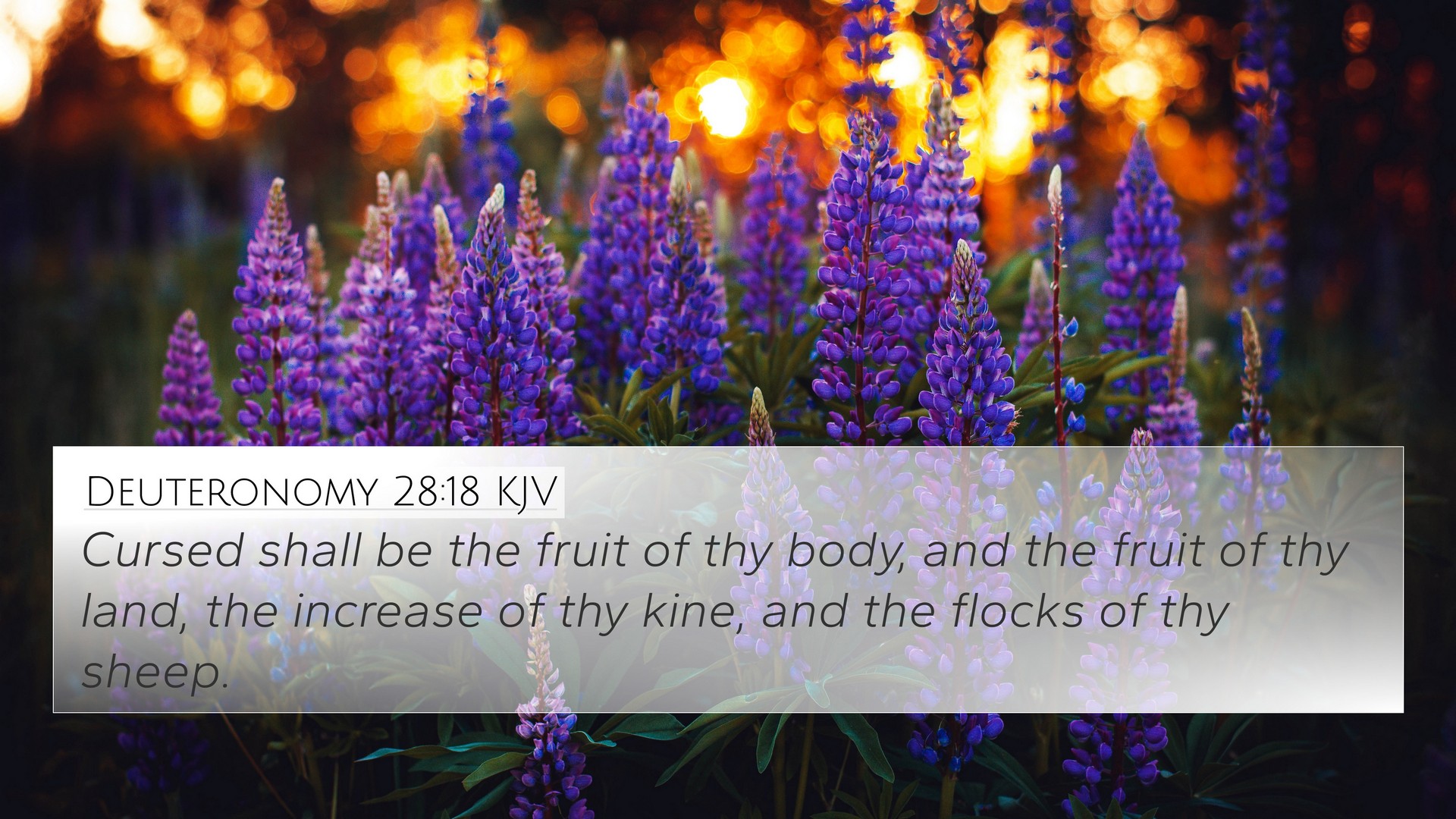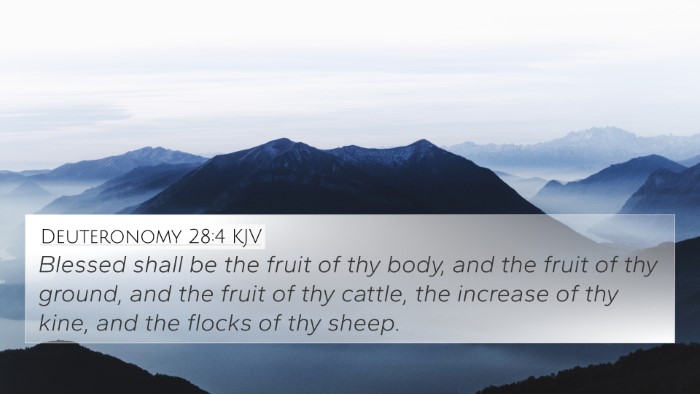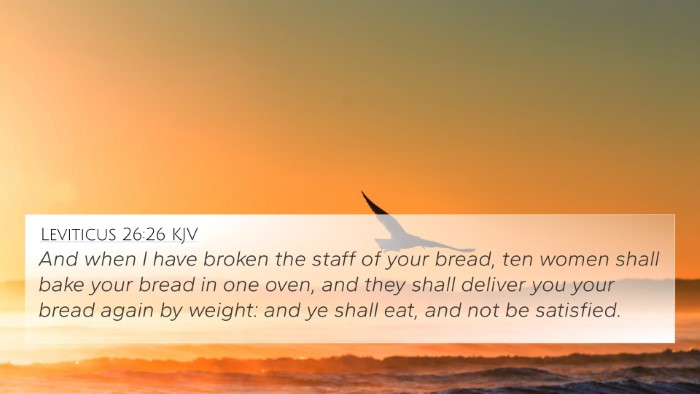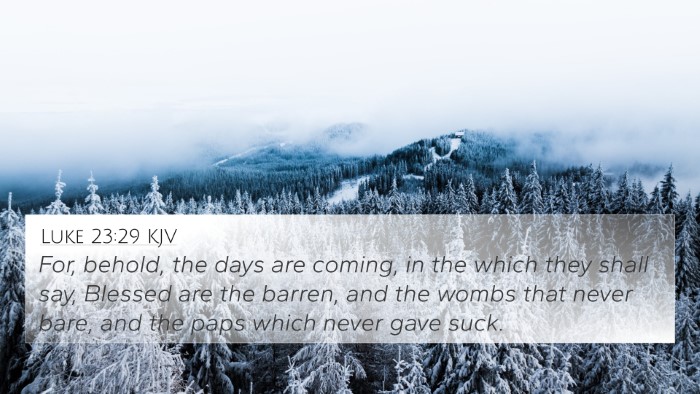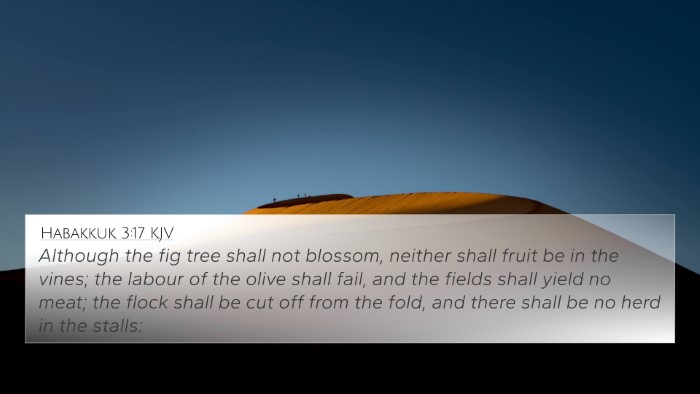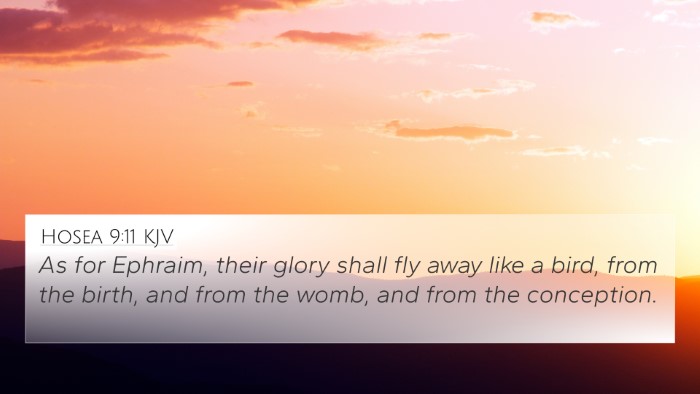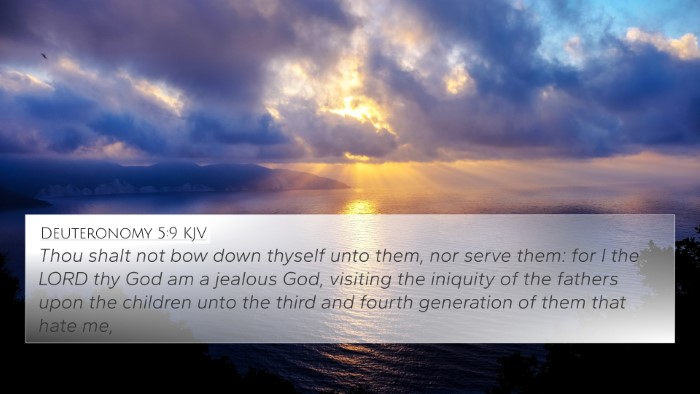Deuteronomy 28:18 states: "Cursed shall be the fruit of your womb, and the fruit of your ground, the increase of your cattle, and the young of your flock." This verse underscores the severe consequences that follow disobedience to God's commandments. To gain a comprehensive understanding, we will explore insights from reputable public domain commentaries.
Overview of Deuteronomy 28:18
In this part of the Hebrew Bible, God communicates the blessings of obedience and the curses of disobedience through Moses. Verses 15-68 detail various curses that would befall Israel if they turned away from God.
Commentary Insights
Matthew Henry's Commentary
Matthew Henry emphasizes the gravity of the curses pronounced in this chapter. He notes that the curses reflect not just a lack of physical prosperity, but also a profound spiritual decay. Henry points out that the mention of "the fruit of your womb" signifies a loss of future generations and the ultimate futility of labor, as the "increase of your cattle" indicates the failure of agricultural and pastoral endeavors.
Albert Barnes' Notes
Albert Barnes argues that the curses listed serve as a tangible warning. He highlights that these curses are not random but rather reflect a direct response from God to the people's choices. The profound despair expressed in the loss of fertility – both human and agricultural – illustrates a divine withdrawal of blessings, which serves to awaken the nation to the consequences of their actions.
Adam Clarke's Commentary
Adam Clarke expands on the theological implications of this verse. He reflects on the broader theme of divine justice that permeates throughout the scriptures. Clarke asserts that the repercussions of sin affect not only the individual but also the community, manifesting in tangible hardships such as poor yields and familial strife.
Thematic Connections
Deuteronomy 28:18 brings forth significant themes of obedience and its consequences. It invites readers to consider the connections between various biblical narratives concerning punishment and discipline.
Cross-References
This verse can be cross-referenced with the following scriptures to enhance understanding:
- Leviticus 26:16 - Similar theme of curses for disobedience.
- Jeremiah 22:30 - Curses relating to lineage and legacy.
- Hosea 9:14 - Correlation between divine judgment and fertility.
- Isaiah 24:6 - The earth mourning due to its inhabitants’ sins.
- Malachi 2:2 - Severe consequences for priests who are unfaithful.
- Galatians 6:7 - Principle that one reaps what they sow.
- Romans 1:21-24 - God’s response to unthankfulness and sin.
Understanding the Consequences of Disobedience
The unhappiness described in Deuteronomy 28:18 is profound. It serves as a reminder of God’s covenant with Israel, where blessings are tied to obedience and curses to rebellion. This theme resonates throughout both the Old and New Testaments.
Bible Verse Connections
Understanding Deuteronomy 28:18 leads to the exploration of connections between Bible verses that discuss divine judgement versus blessing:
- Deuteronomy 30:19 - Choice between life, death, blessings, and curses.
- Matthew 7:17-18 - Good trees bear good fruit, reflecting obedience.
- James 1:12 - Perseverance under trial leads to a crown of life.
Conclusion
In conclusion, Deuteronomy 28:18 encapsulates a powerful warning regarding the outcomes of faithfulness versus disobedience. The profound points drawn from Matthew Henry, Albert Barnes, and Adam Clarke encourage a deep reflection on spiritual integrity and the implications of our choices. The cross-referenced scriptures enhance the understanding of how these themes interweave throughout the Bible, showcasing a consistent narrative of God's relation to humanity.
Further Insights
For those interested in Bible cross-reference guide techniques, consider using Bible concordance and other Bible reference resources to explore inter-Biblical dialogues and deepen your understanding of thematic links between verses.
Call to Study
Delve into a comprehensive study of the Bible cross-reference system to uncover the intricacies of scriptural connections. Tools for Bible cross-referencing such as Bible cross-reference materials can significantly enrich your study.
